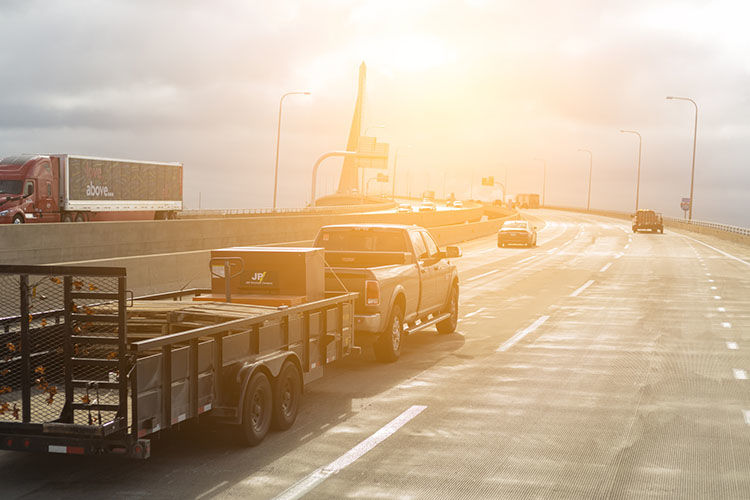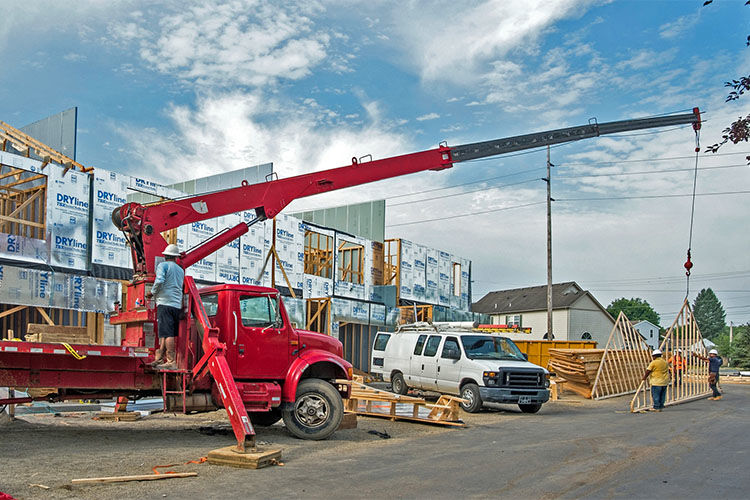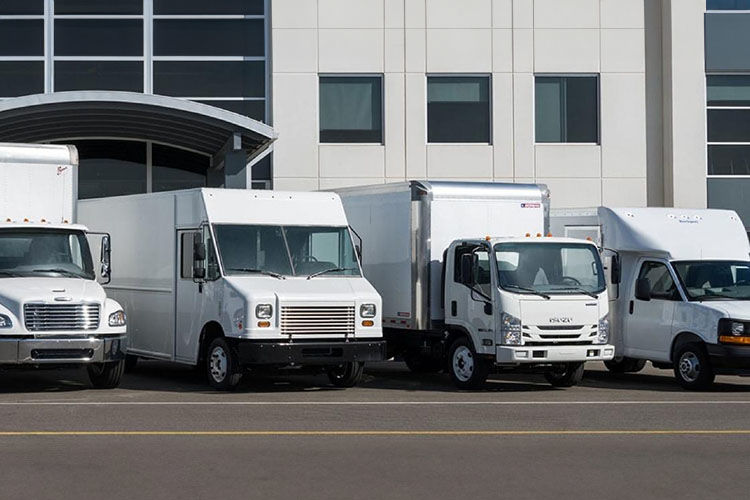Managing and Purchasing a Fleet for an HVAC Business


Managing and Purchasing a Fleet for an HVAC Business
We ask Bob of award-winning White Glove Chimney about how his heat, ventilation, and air conditioning business handle their work trucks with a large service area.
- Bob estimates an estimated $4,000 on fuel each month to handle a service area of 16,000 square miles.
- For maintaining their vehicles, a log is kept to carefully keep their work vehicles in good shape.
- Each work truck is equipped to handle every one-of-a-kind job.
- A big box truck is useful for large installations, but not great for home servicing/installs.
- Purchasing a work truck or a fleet of them is one of the most important factors in starting a HVAC business.
Q: How many miles do the technicians drive each month?
A: Our service area is about 16,000 square miles. We service eight counties so it’s a huge area. Different techs have different capabilities, so not everybody could do the same job. So we put thousands and thousands of miles on and we probably spend $4,000 a month in fuel at least.
Q: How do you manage fleet service and maintenance?
A: We have one guy that’s in charge of vehicles, he keeps the log. Every Friday, the techs go through their vehicles and then their information is transferred to him. And then we have a person in the office then who keeps track of that information. It’s turned in to them–they see the oil changes that are necessary, they’re also saying “Well, we’ve got a cracked windshield, we’ve got tires that are gonna be coming up… something’s making noise…”
The hardest thing is a lot of the guys driving the vans. It’s not their car and they don’t think about it. Plus the vans are noisy. We’ve got tools and stuff swinging around in it so they’re not always conscious. It’s good if I, or one of the other senior techs, go out and drive the vans once a month or so and just go “Oh this thing pulls to the right.” Somebody who doesn’t drive it all the time has to check it in order to make sure that the maintenance is done on time.
Q: What types of issues do you have with your fleet?
A: The issues that we tend to find are: “I didn’t know that was the brakes that were metal on metal.” Others are: “It had a crack in the windshield” or “I backed into something in it now my side-view mirror and cracked it now I can’t see out of it.” Those sorts of things that we don’t know about, and then they are compensating for it. Because we’re all on different schedules, we don’t always see each other to have that discussion.
Oil changes we’re pretty good about. That’s regular maintenance. If we had somebody–if we were large enough to just have a vehicle person–they would take care of all of those kinds of things.
It would be ideal for us is to have an extra vehicle. That’s the one problem that we have: if we have to close down a truck for a day while it’s getting serviced, that’s a day lost work. So for us, if we could get an extra one and maintain it, that would be the way to go.
Q: Would you want a big box truck?
A: Companies that tend to have larger trucks–like the box trucks that have a side entrance and everything else–those trucks typically are used for big installations and repairs and that’s all. In our particular company, every one of our trucks does every one of the kinds of jobs that we do. So, we don’t want to have to drive around a great big truck all the time, when maybe two-thirds of the time we could use a little one. They’re harder to maneuver. They’re harder to park.
"Everything should do double duty: carry what you need and don’t carry what you don’t need." - Bob, White Glove Chimney
They do carry a lot of stuff, but I come from a mountaineering background. And it’s not always a good thing to have a big pack because you’ll just fill it up with junk, and really you want to get that efficiency. Everything should do double duty: carry what you need and don’t carry what you don’t need. So a lift gate sometimes would be nice for us, but we end up using a trailer instead. The other benefit of the trailer is we don’t have to pay the same insurance and registration that we would on a vehicle. So for something that we’re using part of the time, it’s good for us to use a trailer.
Q: What advice would you give to someone starting an HVAC business like yours?
A: In terms of vehicles, if somebody was actually starting a business, a lot comes down to working capital. Do you have enough money to buy a vehicle or not? Ideally, you’re going to know what you need.
Q: What questions should a business owner be asking?
A: If you go buy skis they’re gonna ask: “Well, what kind of skiing are you going to do? Do you want powder skis? Do you need all-mountain skis? Do you want to go backcountry? Are you gonna Telemark? What is it?” And it would be the same thing with the truck. “Well, what kind of work are you going to do? Is your primary job service work? Are you also a contractor who’s doing chimney repairs? Are you gonna have to load it up with things?”
Not everybody does all the same jobs. That’d be your first thing to ask: “What kind of roads are you gonna go to? Are you gonna have to tow heavy loads? Are you gonna end up pulling a trailer with things like that?” And if not, then you don’t need a vehicle that’s gonna be capable of that, so you can save some money there.
Another question is: “How big is your market area?” I don’t know how guys work in New York City. You’re gonna have to double park. You’re always gonna have trouble finding places to go. You can’t park in a lot of garage parking areas because you’ve got ladder racks and things on top and they won’t fit. They’re all so squished together. On the other hand, if you work in the Midwest and you’re in Kansas, it’s flat it’s open and everything’s really easy to get to.
So decide that, and then have a list of tools. Have a list of what you’re actually going to be carrying in the van. (It’s good for insurance as well.) Otherwise, you end up with a pile and nothing’s in the right spot.
Published on: October 02, 2019 2026 Commercial Trucks and Vans: What’s New from Ford, GM, and Ram
2026 Commercial Trucks and Vans: What’s New from Ford, GM, and Ram Summer Fleet Maintenance: How to Protect Commercial Vehicles from Extreme Heat
Summer Fleet Maintenance: How to Protect Commercial Vehicles from Extreme Heat How Commercial Vehicles Impact Construction's Top 5 Concerns
How Commercial Vehicles Impact Construction's Top 5 Concerns Navigating Your Options: Key Tips For Choosing The Right Commercial Vehicle
Navigating Your Options: Key Tips For Choosing The Right Commercial Vehicle Easing Into a Zero-Emission Commercial Vehicle Fleet: How One Hydrogen Truck Can Start a Revolution
Easing Into a Zero-Emission Commercial Vehicle Fleet: How One Hydrogen Truck Can Start a Revolution







